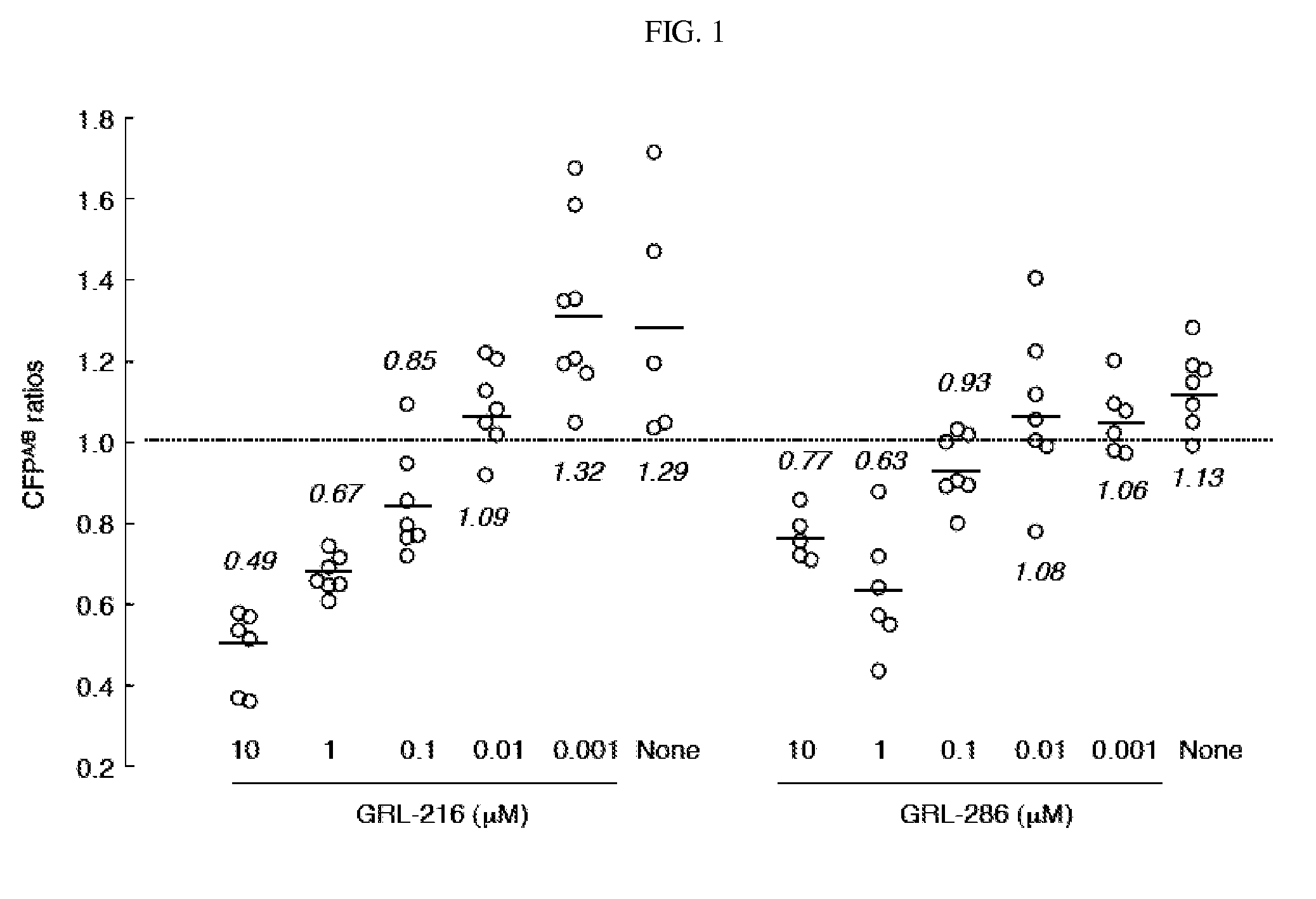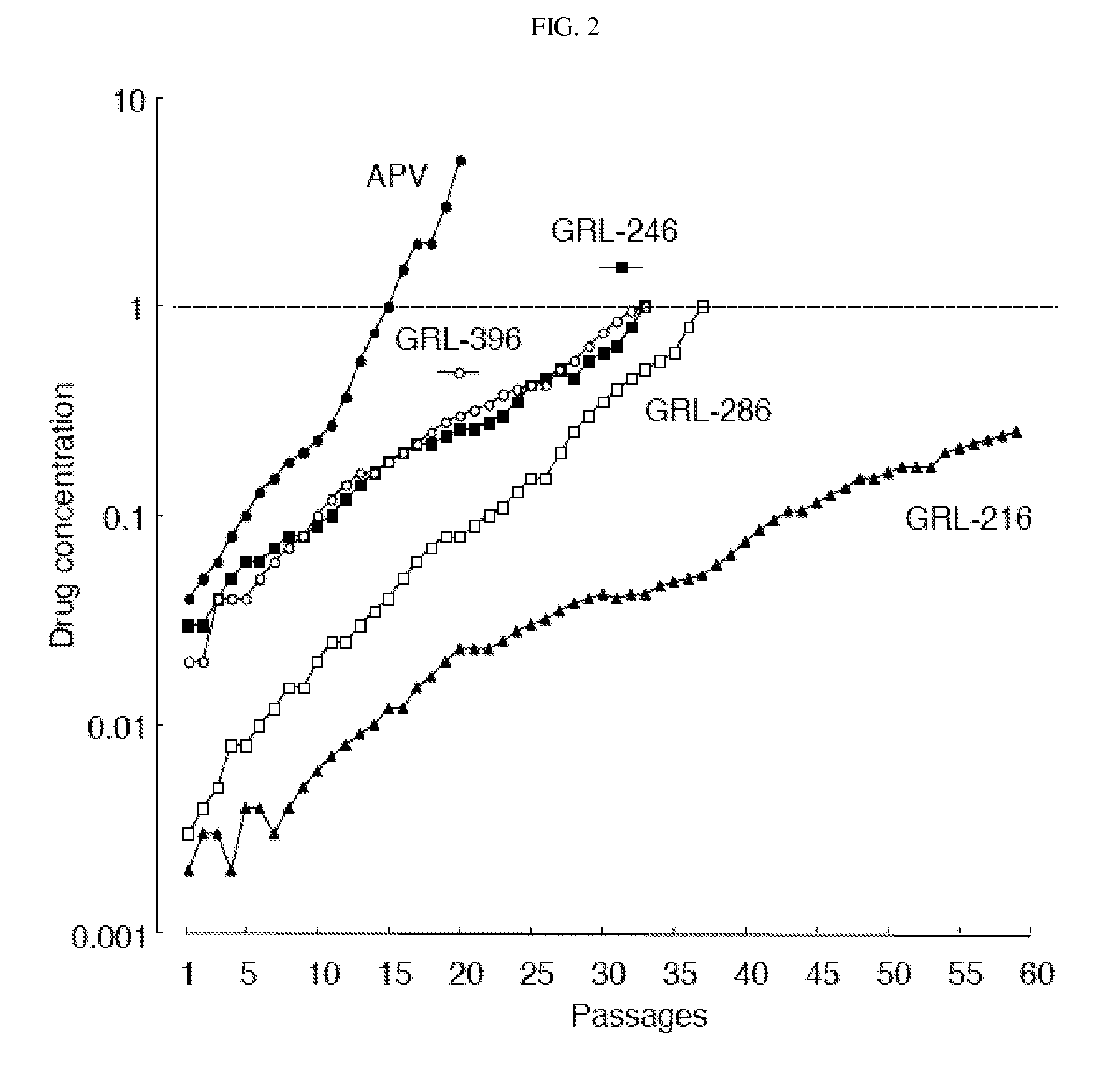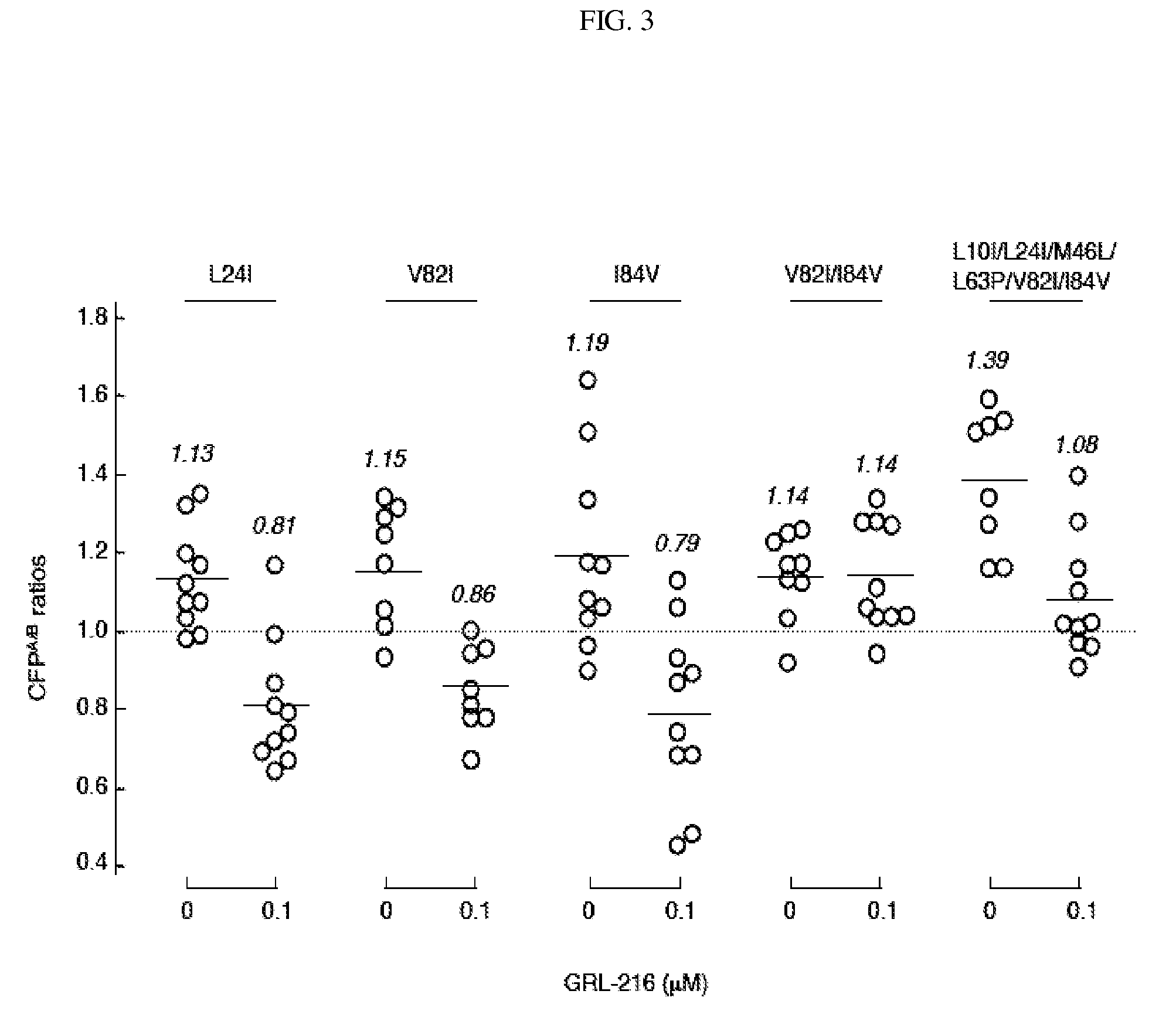Compounds and methods for treating AIDS and HIV infections
a technology for applied in the field of compound and method for treating aids and hiv infections, can solve the problems of complex treatment, poor adherence to treatment, and severe limitations of current haart treatment regimens, and achieve the effects of reducing mortality and morbidity, improving quality of life, and increasing life expectancy
- Summary
- Abstract
- Description
- Claims
- Application Information
AI Technical Summary
Benefits of technology
Problems solved by technology
Method used
Image
Examples
example 1
[0211]1-(Hex-5-enyloxy)-3-methoxybenzene (5a): To a stirred solution of 3-methoxy phenol (1.24 g, 10 mmol), 5-hexen-1-ol, 4a (1.4 mL, 12 mmol) and Ph3P (3.14 g, 12 mmol) in THF (20 mL) at 0° C. was added diisopropylazodicarboxylate (2.3 mL, 12 mmol) dropwise. After stirring the solution for 30 min at 0° C. the reaction mixture was warmed to 23° C. and stirred for 3 h. The reaction mixture was concentrated in vacuo and the residue was subjected to column chromatography (98:2 hexanes:EtOAc) to yield 1.98 g of 5a (96% yield) as a colorless oil. 1H NMR (400 MHz, CDCl3): δ 1.58-1.66 (m, 2H), 1.80-1.88 (m, 2H), 2.15-2.20 (m, 2H), 3.82 (s, 3H), 3.98 (t, J=6.4 Hz, 2H), 5.02-5.12 (m, 2H), 5.83-5.92 (m, 1H), 6.52-6.56 (m, 3H), 7.19-7.24 (m, 1H); 13C NMR (100 MHz, CDCl3): δ 25.3, 28.7, 33.4, 55.1, 67.6, 100.9, 106.0, 106.6, 114.7, 129.8, 138.5, 160.3, 160.8; FT-IR (film, NaCl) νmax=3075, 2939, 1599, 1493, 1287, 1200, 1152, 1046 cm−1; CI LRMS m / z (ion): 207.25 (M+H)+.
example 2
[0212]1-Methoxy-3-(pent-4-enyloxy)benzene (5b): Title compound was obtained from 4-penten-1-ol 4b, as described for 5a in 95% yield after flash-chromatography (98:2 hexanes:EtOAc) as a colorless oil. 1H NMR (400 MHz, CDCl3): δ 1.88-1.94 (m, 2H), 2.25-2.30 (m, 2H), 3.81 (s, 3H), 3.98 (t, J=6.4 Hz, 2H), 5.03-5.13 (m, 2H), 5.85-5.95 (m, 1H), 6.51-6.56 (m, 3H), 7.20 (t, J=8.1 Hz, 1H); 13C NMR (100 MHz, CDCl3): δ 28.3, 30.0, 55.1, 67.0, 100.9, 106.0, 106.6, 115.1, 129.7, 137.7, 160.2, 160.7; FT-IR (film, NaCl) νmax=3076, 2940, 1599, 1492, 1287, 1200, 1152, 1048 cm−1; CI LRMS m / z (ion): 193.25 (M+H)+.
example 3
[0213]1-(But-3-enyloxy)-3-methoxybenzene (5c): Title compound was obtained from 3-buten-1-ol 4c, as described for 5a in 96% yield after flash-chromatography (98:2 hexanes:EtOAc) as a colorless oil. 1H NMR (400 MHz, CDCl3): δ 2.54-2.60 (m, 2H), 3.81 (s, 3H), 4.02 (t, J=6.7 Hz, 2H), 5.13-5.23 (m, 2H), 5.89-5.97 (m, 1H), 6.51-6.56 (m, 3H), 7.20 (t, J=8.1 Hz, 1H); 13C NMR (100 MHz, CDCl3): δ 33.6, 55.1, 67.1, 100.9, 106.2, 106.6, 116.9, 129.8, 134.4, 160.1, 160.8; FT-IR (film, NaCl) νmax=3136, 2378, 1644, 1509 cm−1; CI LRMS m / z (ion): 179.20 (M+H)+.
PUM
| Property | Measurement | Unit |
|---|---|---|
| pressure | aaaaa | aaaaa |
| total volume | aaaaa | aaaaa |
| resistance | aaaaa | aaaaa |
Abstract
Description
Claims
Application Information
 Login to View More
Login to View More - R&D
- Intellectual Property
- Life Sciences
- Materials
- Tech Scout
- Unparalleled Data Quality
- Higher Quality Content
- 60% Fewer Hallucinations
Browse by: Latest US Patents, China's latest patents, Technical Efficacy Thesaurus, Application Domain, Technology Topic, Popular Technical Reports.
© 2025 PatSnap. All rights reserved.Legal|Privacy policy|Modern Slavery Act Transparency Statement|Sitemap|About US| Contact US: help@patsnap.com



